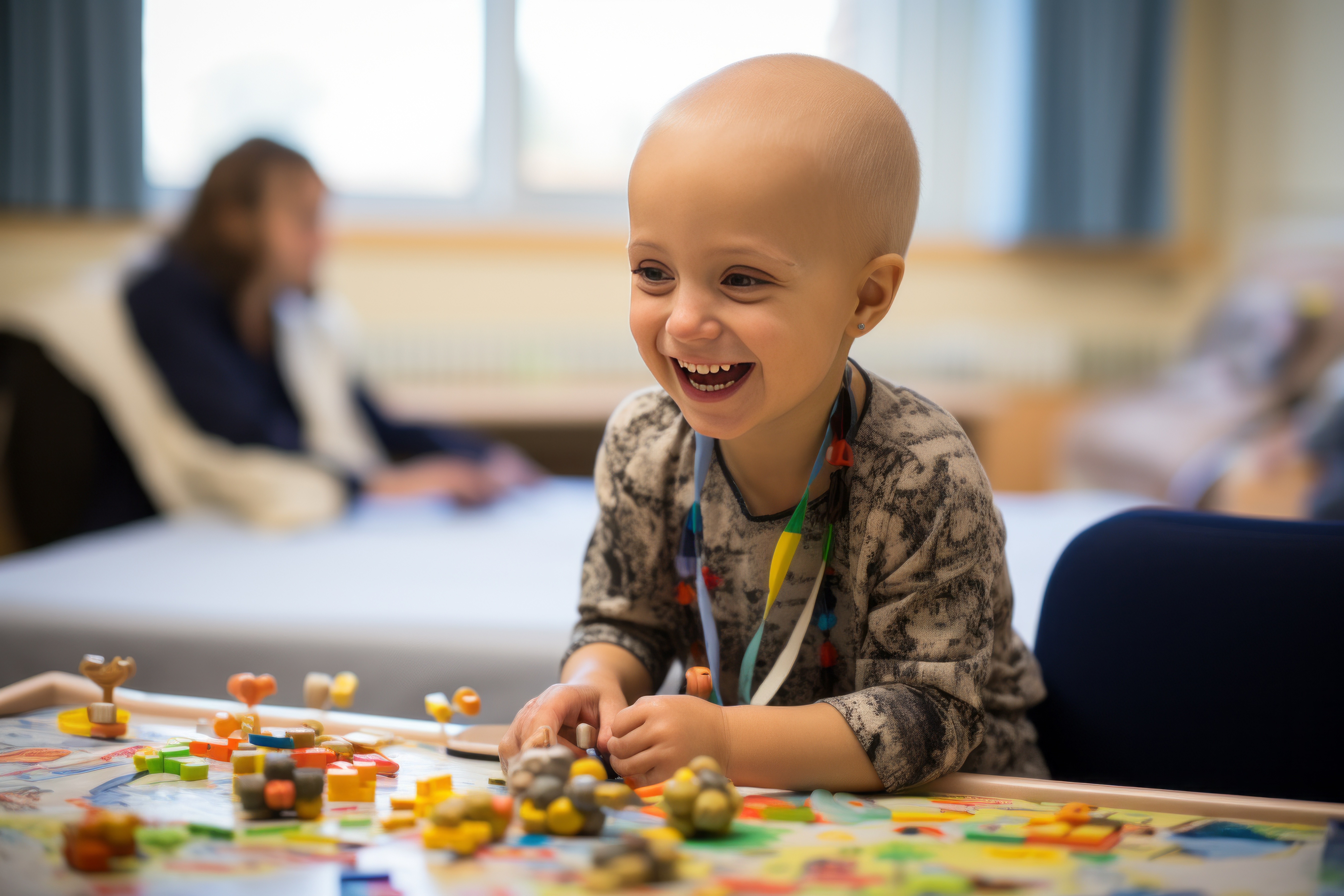Parent Child Interaction Therapy and Childhood Cancer

Facing cancer is an immense challenge for anyone, but for children, it means grappling with their mortality at an age meant for dreams of being a princess or a superhero. For their parents it is a terrifying ordeal to witness the effects of treatment. To say the least, it is a traumatic experience for both parents and children.
Childhood cancer and other childhood illnesses can have a significant impact on a child’s behavior and how parents respond to their child. Children with cancer are at risk for a range of behavioral challenges, short term and long-term. Effects of childhood cancer can interfere with development, social skills, and self-esteem. Childhood cancer can also increase the risk of developing anxiety and depression.
Parent-Child-Interaction Therapy (PCIT), a treatment developed over 30 years ago for children and families, has been researched to discover how it may benefit families of young children with cancer or chronic illness. PCIT was originally developed for children ages 2-7 with behavioral challenges. Sessions are conducted with the child and the parents. The parents learn therapeutic interventions that have a high success rate in helping children to become more cooperative and behave in ways that are socially acceptable. Over the years PCIT and adaptations to PCIT has been studied and shown effective for more than behavioral issues. PCIT and adaptations to the treatment have been shown to be effective for anxiety, depression, trauma, ADHD, and children with Autism Spectrum Disorder.
Specifically for children with cancer or chronic illnesses, PCIT helps children feel safe and connected to their caregivers. PCIT offers the child a break from constant focus on their treatment and helps children manage their fears and anxiety about doctor’s visits or home treatments. PCIT empowers parents and gives them the reassurance they need to maintain consistent and firm discipline using effective strategies to manage their child’s behavior. Many parents find it difficult to set limits with their children because they feel the urge to protect their fragile child from any consequences. PCIT can provide a sense of normalcy for the child and provide the structure that is needed for the child to recover not just physically but emotionally from such a harrowing experience as cancer. Parent-Child Interaction Therapy is the gold standard of treatment for children with behavioral issues. However, new research shows that trained clinicians can adapt the protocol to meet the needs of children with cancer or recovering from cancer, providing treatment at home or in hospital settings. PCIT is a valuable intervention to building resiliency in children and mitigating the long-lasting effects of cancer or other chronic illness.



